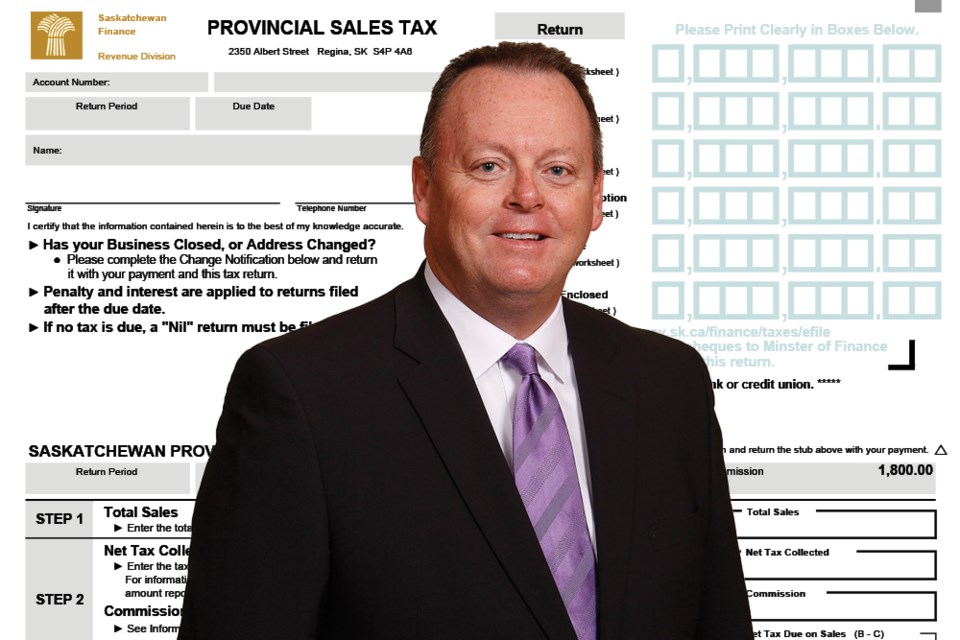The 2017-18 provincial budget features a one per cent increase in the PST, elimination of tax exemptions, increases in various other taxes and a decrease in income taxes.
The budget, released March 22, will have to raise $14.17 billion to pay for $14.80 billion in expenses. There will be a $685 million deficit.
Kevin Doherty, the finance minister, said the tax changes are part of a necessary modernization of the tax base.
“Saskatchewan’s resource revenues have declined by over a billion dollars a year, depleting reserves and the rainy day fund,” he said. “And so, our budget challenge is clear. We must move away from our reliance on resource revenues, and we must return the budget to balance.”
The increase in the PST to six per cent will be effective March 23, raising an estimated $242.1 million.
PST exemptions on children’s clothing, restaurant meals, snack foods, the value of an automobile trade-in allowance, contracts for renovations on property, insurance premiums, and permanently mounted equipment in the oil and gas sector will be removed April 1, raising $647.1 million.
The amount raised by education property taxes will increase by $67 million, with $13 million coming from growth in the tax base.
Fuel tax exemptions for bulk purchases of gasoline are eliminated and for diesel are reduced by 80 per cent of the purchase, effective April 1, raising $40.2 million.
The tobacco tax will go up two cents per cigarette, raising $10 million. Liquor will see price increases to raise $5 million.
Tax credits for post-secondary tuition and education expenses will be eliminated, raising $28.2 million.
Personal income tax indexation, which pegs tax brackets to inflation to ensure that taxpayers aren’t knocked into a higher tax bracket due to inflation, will be suspended, raising $1.9 million.
Income taxes, both personal and corporate, will go down half a percentage point for all on July 1 and again on July 1, 2019. That will allow taxpayers to keep $82.2 million. An extra $34 million will be used to enhance the low-income tax credit by $100 per adult and $40 per child.
The goal will be to get out of deficit in three years, with a deficit of $304 million forecast in 2018-19, a $15 million surplus in 2019-20 and a $183 million surplus in 2020-21.
Doherty said there was no easy fix to the province’s budget problems.
“We know that moving too far, too fast could jeopardize the economic strength our province is showing. So this budget will meet the challenge by returning to balance over three years.”

.png;w=120;h=80;mode=crop)


